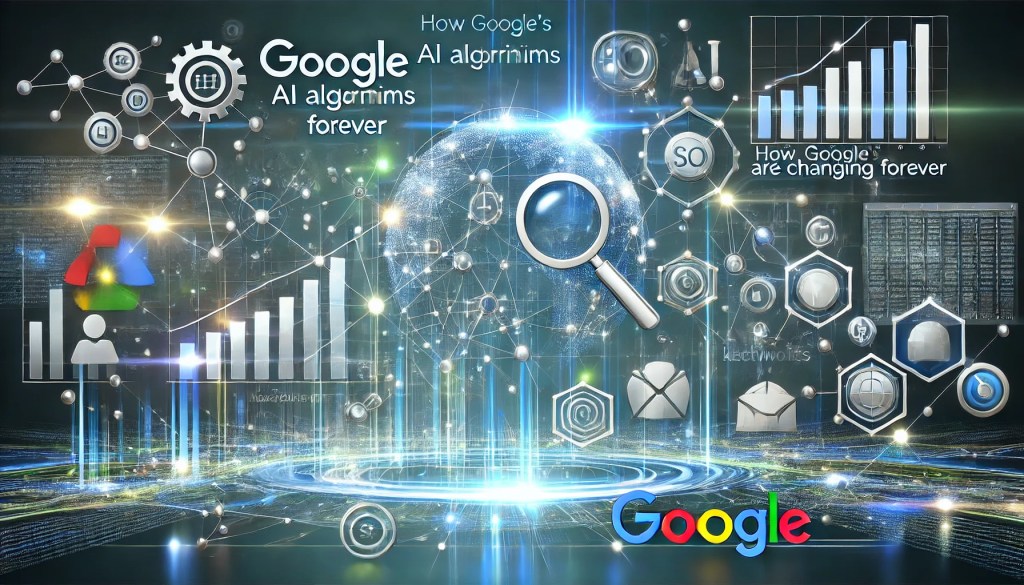How Google’s AI Algorithms Are Changing SEO Forever
Worried your SEO strategy is outdated?
Stressed that Google’s AI updates are making your content invisible?
Wondering how to adapt before your traffic tanks?
You’re not alone. Google’s AI-driven algorithms (like BERT, MUM, and now Gemini) are rewriting the rules of SEO. What worked 2 years ago won’t cut it today.
The good news? You can still win—if you play by the new rules.
Here’s how Google’s AI is changing SEO forever (and what you need to do about it).
How Google’s AI Works Now (No Tech Jargon, Just Facts)
Google’s AI doesn’t just “rank” pages anymore—it understands intent, context, and quality like a human.
Key AI Updates Changing SEO:
-
BERT (2019) – Understands natural language, slang, and long-tail queries.
-
MUM (2021) – Processes multi-format content (text, video, images) in one search.
-
Gemini (2023+) – Next-level AI that predicts user needs before they finish typing.
What this means for you:
-
Keyword stuffing? Dead.
-
Thin content? Buried.
-
User experience (UX) and relevance? King.
5 SEO Shifts You MUST Make in 2024
1. Stop Obsessing Over Keywords—Focus on Topics
Google’s AI clusters content by topic, not just keywords.
✅ Do this instead:
-
Target topic clusters (e.g., “best running shoes” + “how to choose running shoes” + “running shoe reviews”).
-
Use semantically related keywords (LSIs) naturally.
-
Answer follow-up questions in your content.
2. Write for Humans, Not Bots
AI can detect fluff, poor readability, and engagement drops.
✅ Fix it fast:
-
Keep sentences short & punchy.
-
Use subheaders, bullet points, and bold text (like this).
-
Make it conversational (write like you talk).
3. Prioritize EEAT (Experience, Expertise, Authority, Trustworthiness)
Google’s AI scores your credibility.
✅ Boost your EEAT:
-
Add author bios with credentials.
-
Cite trusted sources (studies, experts, .gov/.edu sites).
-
Show real user reviews/testimonials.
4. Optimize for Voice & Zero-Click Searches
Over 60% of searches are voice-based.
✅ Get ahead:
-
Answer questions directly (use FAQ schema).
-
Target “near me” and conversational queries.
-
Optimize for Featured Snippets (position 0).
5. Speed & UX > Everything Else
Google’s Page Experience Update ties rankings to:
-
Core Web Vitals (loading speed, interactivity, visual stability).
-
Mobile-friendliness.
-
Low bounce rates.
✅ Quick fixes:
-
Compress images (TinyPNG).
-
Use a fast hosting provider (Cloudways, Kinsta).
-
Simplify design (less clutter = higher retention).
FAQs: Google’s AI & SEO in 2024
Q: Is keyword research still important?
A: Yes, but not the old way. Use tools like Ahrefs or SEMrush to find topic clusters + user intent, not just high-volume keywords.
Q: Does backlinking still matter?
A: Absolutely—but quality over quantity. 1 link from Forbes beats 100 spammy directory links.
Q: How do I rank higher with AI content?
A: Human-edited AI content works if it’s helpful, original, and EEAT-optimized. Pure AI spam? Google will nuke it.
Q: What’s the biggest SEO mistake in 2024?
A: Ignoring user experience. If people bounce, Google buries you.
Tools & Resources to Stay Ahead
Need help adapting? Check these:
-
Mediageneous.com (Boost your content & social media reach).
-
SurferSEO (AI-driven content optimization).
-
Clearscope (Topic & semantic keyword research).
-
Screaming Frog (Technical SEO audits).
Final Word: Adapt or Get Left Behind
Google’s AI isn’t slowing down. SEO in 2024 is about:
✔ Relevance (answer what users truly need).
✔ Experience (fast, easy, engaging).
✔ Authority (prove you know your stuff).
Stop chasing old tricks. Start playing the new game—and win.
Want more SEO & AI insights? Check out Mediageneous.com for cutting-edge strategies.
Question for you: What’s the #1 SEO challenge you’re facing with Google’s AI updates? Drop it below—let’s solve it. 🚀
